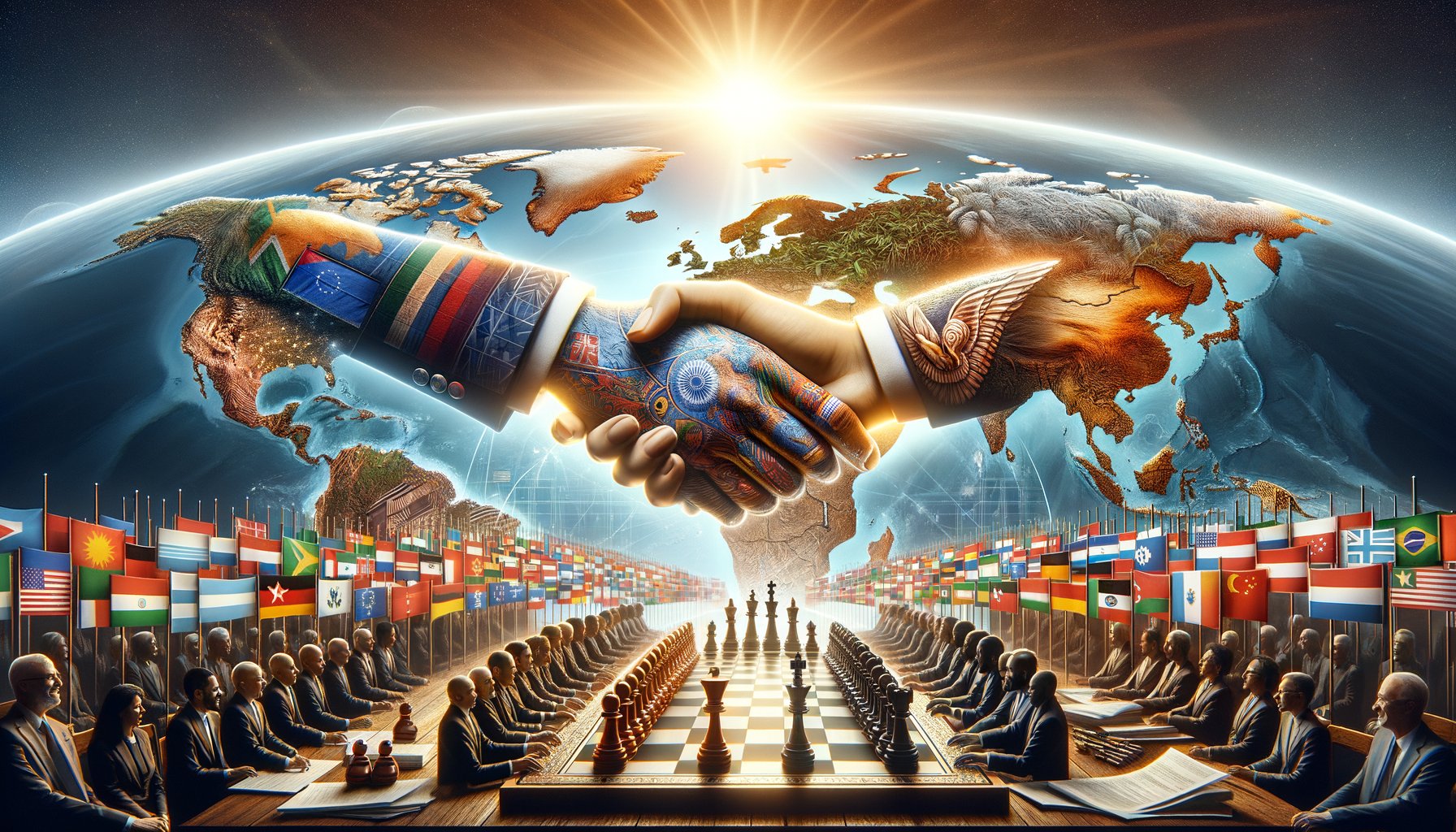Physical Address
304 North Cardinal St.
Dorchester Center, MA 02124
Physical Address
304 North Cardinal St.
Dorchester Center, MA 02124

As we navigate the 21st century, it is evident that the landscape of global politics is undergoing a significant transformation. This metamorphosis is characterised by shifts in power dynamics, ideological changes, and the emergence of new political actors. In this article, we will delve into these changes to understand their implications and potential future impacts.
The traditional power structures that have dominated global politics since World War II are being challenged. The United States’ position as a global superpower is no longer unchallenged; China’s rapid economic growth and increasing military prowess have positioned it as a formidable competitor on the world stage.
This shift in power dynamics can also be seen at a regional level. For instance, in Africa, countries such as Nigeria and South Africa are asserting themselves as regional powers. In Asia, India’s economic growth has bolstered its influence in regional affairs.
The ideological underpinnings of global politics are also changing. Liberal democracy, once seen as the ultimate form of governance, is facing challenges from both within and without. Rising populism in Western democracies has led to an erosion of democratic norms and practices. Meanwhile, authoritarian regimes such as China and Russia are offering alternative models of governance that prioritise stability and economic development over individual freedoms.
Moreover, there’s been a resurgence of nationalist sentiments across the globe. From Brexit to the rise of right-wing parties in Europe to America’s ‘America First’ policy – nationalism is reshaping international relations and challenging the post-war liberal order.
In addition to states, non-state actors have become increasingly influential in global politics. Multinational corporations wield significant power and influence, often surpassing that of smaller nations. Technology giants like Google and Facebook have immense control over information flow, shaping public opinion and influencing political outcomes.
Non-governmental organisations (NGOs) also play a crucial role in global politics. They influence policy-making through advocacy and lobbying, provide essential services where states fail to do so, and hold governments accountable for their actions.
Technology is another factor reshaping the landscape of global politics. The internet has democratised access to information, empowering individuals and groups previously marginalised in the political process. However, it has also facilitated the spread of misinformation and propaganda, posing challenges to democratic discourse.
Cybersecurity has emerged as a major concern in international relations. State-sponsored cyber attacks can disrupt critical infrastructure, steal sensitive information, and undermine national security. As such, cybersecurity is becoming an integral part of national defence strategies.
Lastly, climate change is increasingly being recognised as a critical issue in global politics. The adverse effects of climate change do not respect national boundaries; they are global problems that require collective action. As such, climate change negotiations have become a central aspect of international diplomacy.
The Paris Agreement marked a significant step forward in this regard. However, achieving its goals requires concerted effort from all nations – particularly the major polluters like the US and China. Climate change poses not just environmental challenges but social and economic ones too – making it a complex issue to navigate in global politics.
In summary, the landscape of global politics is changing rapidly due to shifts in power dynamics, ideological changes, new political actors’ emergence, technological advancements and pressing issues like climate change. Understanding these changes is crucial for navigating this new era successfully – whether as a nation, a corporation, or an individual. As we move forward into this uncertain future, it is vital to foster dialogue and cooperation to address the challenges that lie ahead.